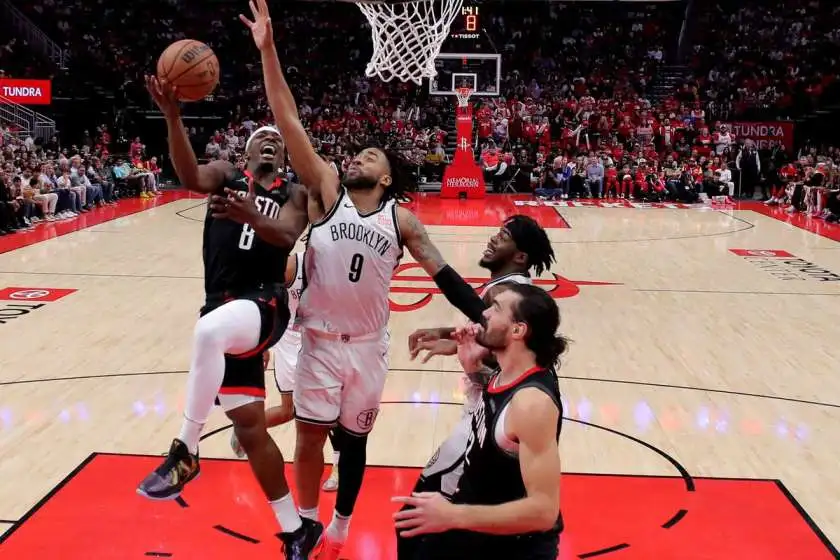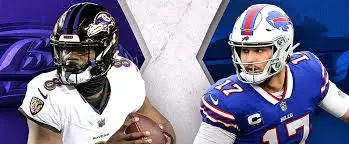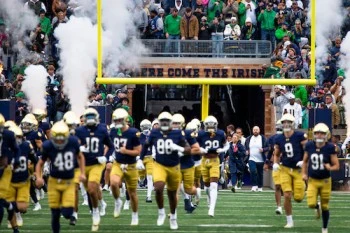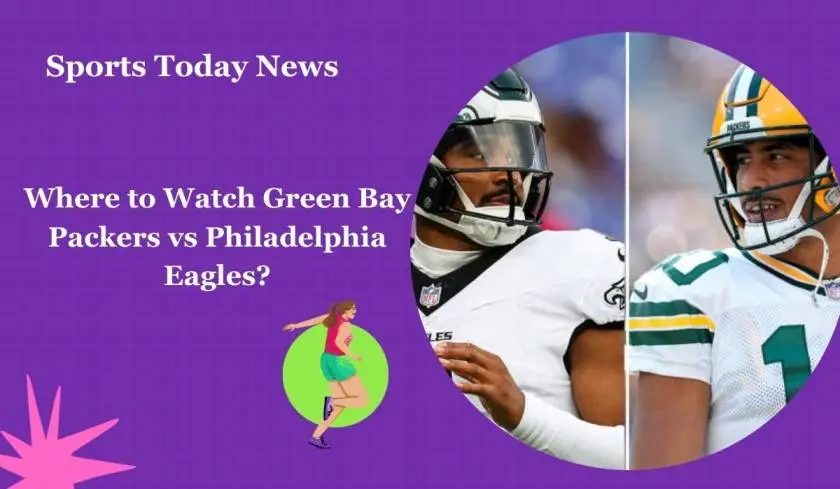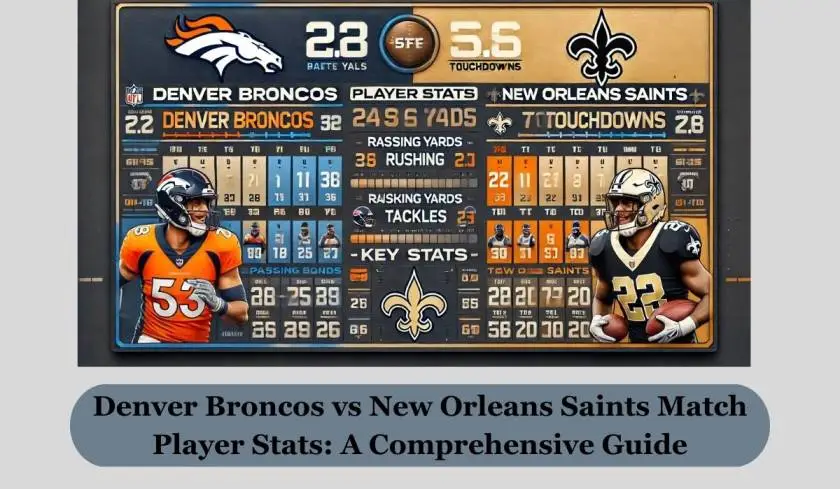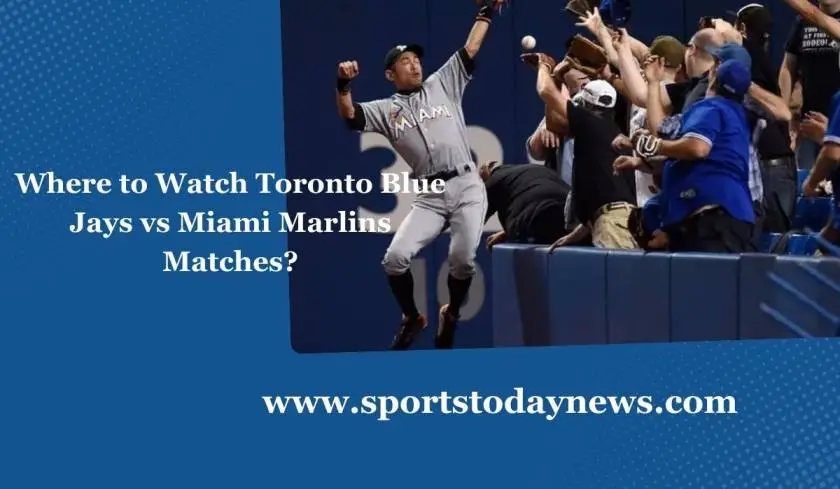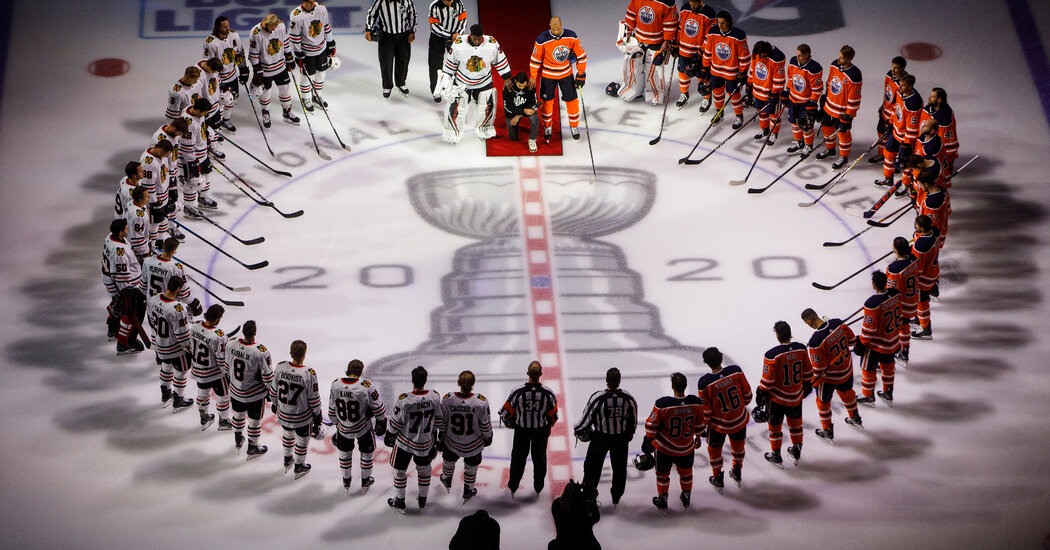
Hockey, Rocked by Racist Acts, Embraces Black Lives Matter Campaigns
Minnesota Wild forward Matt Dumba walked to center ice before an N.H.L. game this month and addressed the television audience, not about the game but the need for the sport to fight racism.
“The world woke up to the existence of systematic racism and how deeply rooted it is,” Dumba said during a speech before two other teams, the Chicago Blackhawks and the Edmonton Oilers, took to the ice.
That he spoke with the N.H.L.’s endorsement and while holding a microphone bearing its logo made the gesture all the more significant for a sport still grappling with high-profile racist incidents and the perception that people of color — Dumba is half Filipino — aren’t welcome.
More than two months after the killing of George Floyd and the protest movement it has engendered, the N.H.L. has begun a high-profile effort to make anti-racism part of its identity and, according to the N.H.L. executive Kim Davis, part of a strategy to appeal to a younger, more racially diverse audience.
“It’s a small shift, but a big shift,” said Davis, the league’s executive vice president for social impact, who added that she wants “people to understand that doing the right thing is also right for the business.”
That has meant scenes and gestures at games once thought unthinkable.
When he finished speaking and “The Star-Spangled Banner” began, Dumba knelt and bowed his head. He wore a hoodie that read, “Hockey Diversity Alliance,” the name of a new initiative begun by players to combat racism in the sport.
Chicago goaltender Malcolm Subban, who is Black, stood next to Dumba and laid a hand on his right shoulder. Edmonton forward Darnell Nurse, who is Black, did the same on Dumba’s left as the anthem played and slogans like “End Racism” and “#WeSkateForBLACKLIVES” appeared on enormous video screens above their heads.
A handful of other players have demonstrated during anthems before postseason qualifying games. Vegas Golden Knights and Dallas Stars players knelt last Monday. Dumba raised a fist during the United States national anthem before the Wild played the Vancouver Canucks on Aug. 2.
The hockey world has been roiled by acts of bigotry.
In April, a group Zoom chat organized by the Rangers to introduce fans to the prospect K’Andre Miller was derailed by hackers hurling racist slurs at him. Three months earlier, the American Hockey League suspended Brandon Manning of the Bakersfield Condors for using racist insults against Bokondji Imama of the Ontario Reign.
Late in 2019, the former N.H.L. player Akim Aliu went public with a series of racist incidents — including a minor league staff member donning blackface to mock him, and a coach using a racial slur — he believes helped short-circuit his career. Aliu’s first revelations came three weeks after the veteran Canadian hockey commentator Don Cherry was forced to leave his widely watched “Coach’s Corner” segment on the Sportsnet hockey broadcast after an on-air rant against immigrants.
Aliu also went public less than two weeks after the Toronto Maple Leafs fired Mike Babcock as coach amid allegations that he fostered a toxic, bullying workplace. That timing, said Damon Kwame Mason, who produced and directed a documentary on race and hockey, pushed mainstream hockey media to report more about racism and helped set the stage for the N.H.L.’s anti-racism steps this summer.
In June, Aliu joined with six other current and former N.H.L. players to form the Hockey Diversity Alliance, which will focus on youth and community engagement to carry out its mission. In July, a range of professional athletes appeared in a public service announcement for the group calling for an end to racism in hockey and in society.
“It says to me that we’re moving forward,” said Mason, director of “Soul on Ice,” the 2016 documentary on pro hockey’s Black history. “It’s almost like the old guard was being told, ‘Pack your bags.’”
Davis acknowledged that the protest movement in the United States made the league’s anti-racism action more urgent. But she emphasized that she has been helping the league develop a comprehensive diversity and inclusion strategy since she was hired in November 2017.
The N.H.L. remains the only major North American sports league not to volunteer for an audit by the Institute for Diversity and Ethics in Sport, which publishes widely read reports on race, gender and hiring in sports and the sports media industry. Davis said the league would work with the institute to establish baseline diversity statistics, and then set hiring targets.
In the meantime, Davis pointed to pregame demonstrations and the roughly 140 players who have posted on social media in support of the league’s anti-racism message as proof that the sport’s culture can change.
“It’s our responsibility to set the tone for the sport regarding racism,” Davis said, adding, “A measure of our success is going to be the continued activism of our players.”
Before an exhibition game last month against the Arizona Coyotes, members of the Golden Knights linked arms in solidarity, at the suggestion of forward Ryan Reaves.
“For a lot of guys, kneeling isn’t the way they want to show support,” Reaves said. “This was the best way to be able to include everybody in it.”
Before the Golden Knights played the Stars last Monday, four players knelt for the anthem — Reaves and Robin Lehner from Vegas, along with Tyler Seguin and Jason Dickinson from Dallas.
Before the Aug. 2 game between Vancouver and Minnesota, the Canucks posted to their Instagram and Twitter accounts a meme of a Venn diagram comparing the two cities. The circles overlapped at four phrases, including “Yet to hoist the cup” and “Justice for George Floyd.” Twitter users quickly criticized the team for its flippant inclusion of a racial flash point in a pregame social media marketing message.
Yet Mason, who hosts the N.H.L.’s Soul on Ice podcast, was not taken aback. He said people like those on the Canucks’ social media staff were not yet fluent in the language of racial justice, but he said he hoped teams would take their fight against racism beyond social media.
“It’s not about symbols and messaging,” he said. “If I don’t see some action in the next little while, stop with the hashtags.”
Carol Schram contributed reporting.

